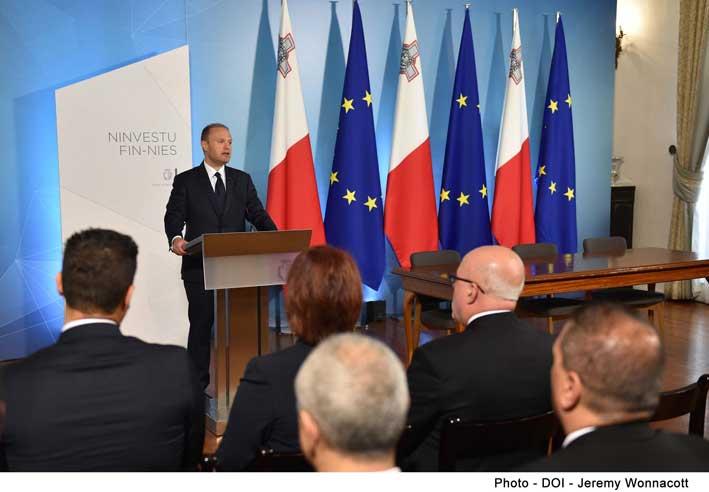Government and workers’ unions have signed the fifth collective agreement which dictates the conditions of work for public sector workers. The agreement is to cost €17 million in 2017, and will increase to €20.5 million in 2024.
The agreement will affect 30,000 public sector workers.
A public sector worker, or a civil servant, are all those employed by a government department or agency.
The figures quoted include both an increase in wages as well as allowances, and will be valid for a total of eight years.
Prime Minister Joseph Muscat, while addressing the signing of the collective agreement, said that the government has invested further in the public sector, to keep it in line with the fast paced economic growth Malta is experiencing.
He added that the people are paying for these wages through their taxes, and the public therefore expects a greater return on their investment, translating into a more efficient services with less bureaucracy.
The agreement assures a salary increase of public administration workers from the first year that the agreement comes into effect.

Signatories to the agreement include the General Workers Union, the Malta Chamber of Psychologists, Malta Union of Midwives and Nurses, the Malta Union of Teachers, the Medical Association of Malta, Union Haddiema Maghqudin and the Union of Engineers and Architects.
All those employees who continue to work after retirement age will no longer lose out on their right to claim pre-retirement leave, which they had worker for. Such workers will be entitled to this leave when they decide to end their employment (likely referring to the pre-retirement leave then paid out to the workers).
Employees who work on a shift basis will also benefit from a change in the shift allowance, while those who have extra qualifications above and beyond what is required of their work will be receiving an increase in the qualification allowance.
Mario Cutajar, permanent secretary of the public service administration explained that state services are engaged in about 70 different sectoral agreements, that will each be coming into effect over the next five years.
Dr Muscat focused his address on this government making strides on the issue of precarious work (perkarjat). He stressed that there was a concerted effort and progress to ensure that workers engaged with private companies who have been contracted to carry out work in government departments, such as a cleaning company, and that workers employed directly with the government, doing the same work, are paid equally.